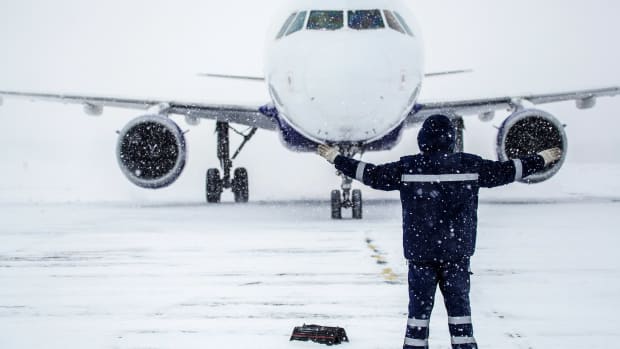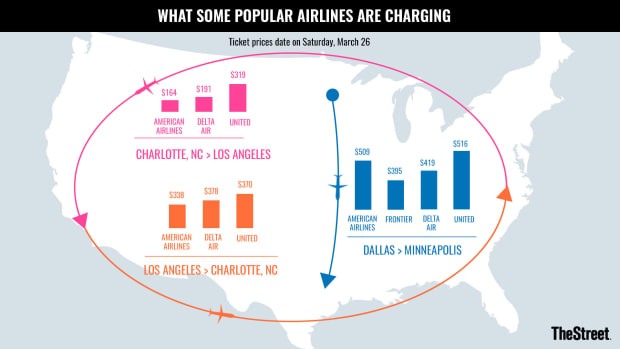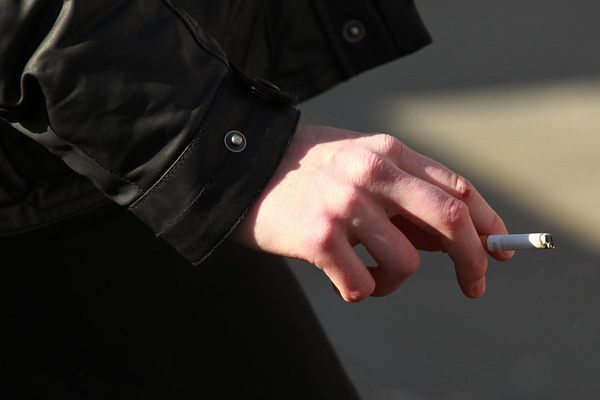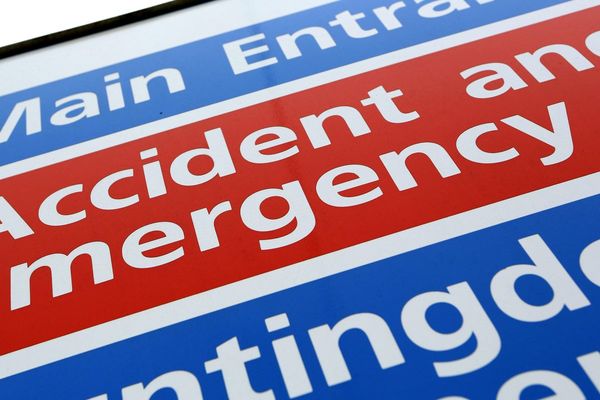Thanks to Covid-derived inflation and Russia’s invasion of Ukraine, gas prices are through the roof. Perhaps you’ve noticed.
As a result, jet fuel prices recently hit their highest levels since 2008, with Brent crude (one of the industry’s leading benchmarks) hitting a peak of $139.13 per barrel. Though that price has started receding a bit, overall fuel costs are still up 35% this year.
Concurrently, the omicron variant surge has receded, and we might be reaching a point soon where the pandemic will slowly shift to an endemic phase.
There’s a lot of uncertainty still, but people are clearly ready to get back to something approaching normal, even if they have to pay extra for the feeling.
At least, that’s what the airline industry is counting on — and they are planning on passing along the rising cost of fuel to customers.
Airlines Were Hit Hard By The Pandemic
The airline industry was hoping to be in recovery mode during the back-half of 2021, as Covid-19 had put a serious cramp on people’s travel plans.
But 2020 was the worst year on record for airlines, resulting in a decrease of 60.2% for the industry.
Once vaccines started rolling out, things were looking up for the industry in the summer of 2021. Then the outbreak of the delta variant, the highly contagious omicron variant, dampened people’s enthusiasm for travel, resulting in another blow.
American Airlines (AAL), the industry’s largest airline, saw a 17% drop in the fourth quarter as compared to the same time period in 2019.
Sticker Shock Comes to Travelers
So it was welcome news when demand for travel began picking back up once the variant receded. But those travelers better prepare themselves for a sticker shock.
Fuel is the second biggest-expense for airlines, and in order to deal with the recent rise in cost, airlines are planning to raise the cost of a plane ticket.
They will also cut back on back on some less popular flights, which will therefore decrease supply, which therefore increases costs. American Airlines has announced that in the first quarter of this year it expects to be 12% below the same period in 2019.

Shutterstock
How Much More Are Tickets Going to Cost?
In the first quarter of 2019, the average domestic fare was $353, according to the Bureau of Transportation Statistics. That dropped to $336 in the same quarter of 2020, and $260 in 2021.
By comparison, average fares for U.S. travel agencies rose to $464 in February from $409 a month earlier, according to the Airline Reporting Corp.
Airlines buy jet fuel a few weeks in advance, so it will take a bit of time for the expected price increases to fully kick in. But there’s already evidence that prices have risen since last year, as seen by the current prices of a number of popular flights.
Here is what some popular airlines are charging for an afternoon ticket to Dallas from Minneapolis, according to Expedia, on Saturday, March 26.

TheStreet
- American Airlines (12:20pm - 2:41pm): $509
- Frontier Airlines (ULCC) (2:55pm - 8:23pm): $395
- Delta Air Lines (DAL) (4:30pm - 6:54pm): $419
- United Airlines (UAL) (6:34pm - 11:31pm): $516
Here is what some popular airlines are charging for an afternoon ticket to Charlotte, North Carolina from Los Angeles, according to Expedia, on Saturday, March 26.
- American Airlines (6:30pm - 10:43pm): $338
- Delta (5:24pm - 9:30pm): $378
- United (2:49pm - 8:15pm) $370
And finally, here is what some popular airlines are charging for an afternoon ticket to Charlotte, North Carolina, from Los Angeles, according to Expedia, on Saturday, March 26. Prices for this one seem on the lower side, so not all routes have been impacted just yet.
Also, flights prices change frequently due to numerous factors, so you might be able to grab some deals if you hurry.
- American Airlines (4:00pm - 10:45pm): $164
- Delta (12:51pm - 4:34pm): $191
- United (7:34pm - 10:55pm): $319







